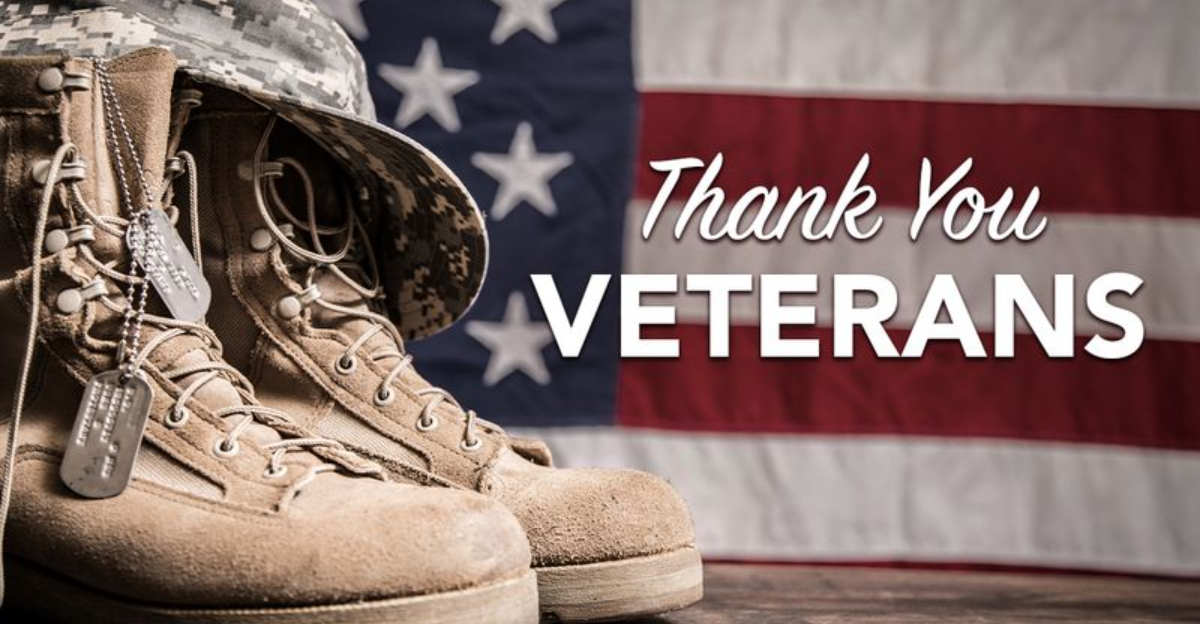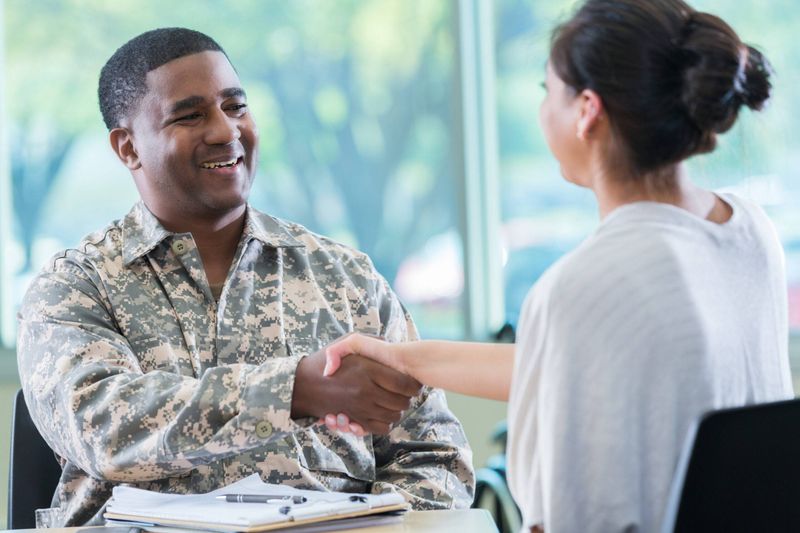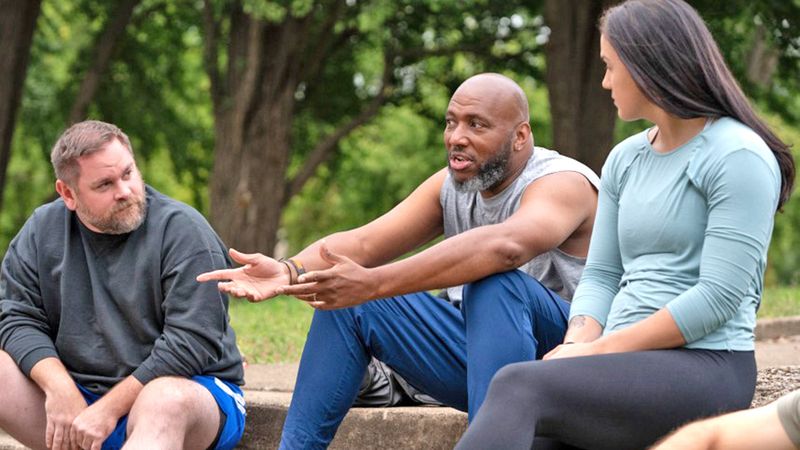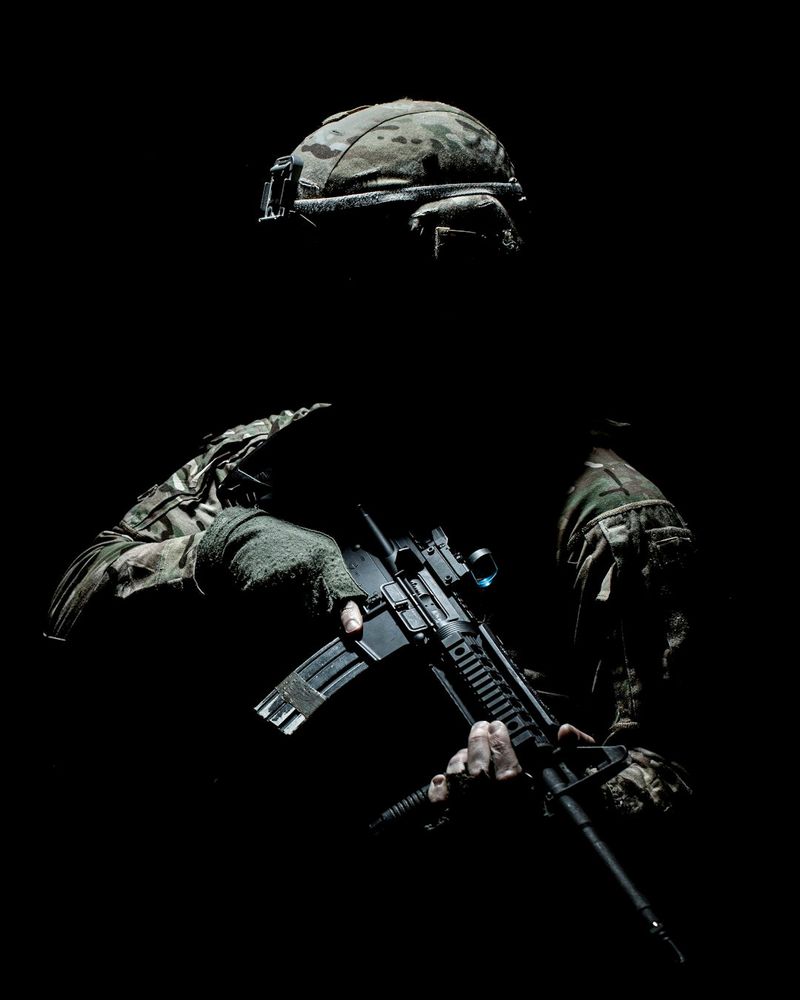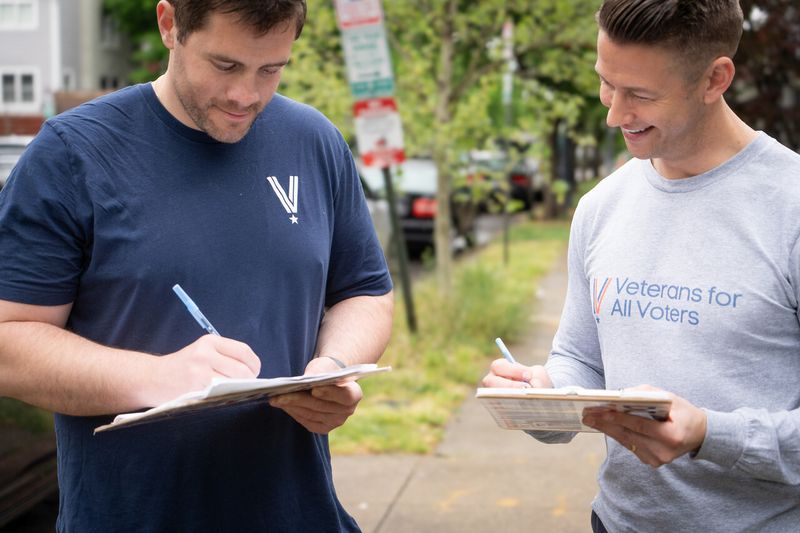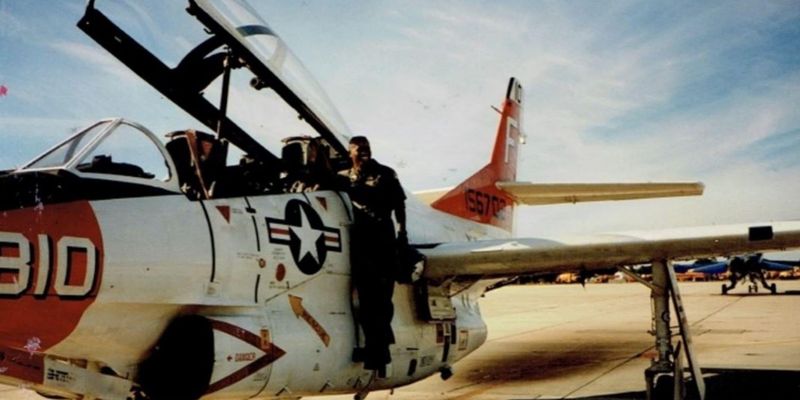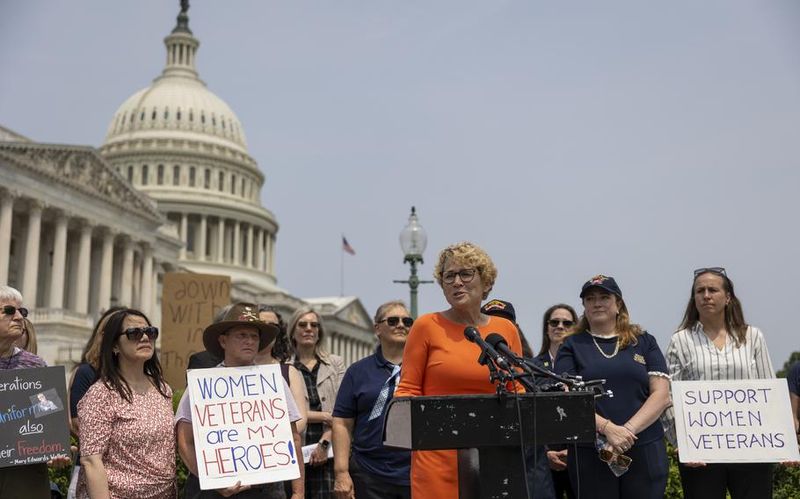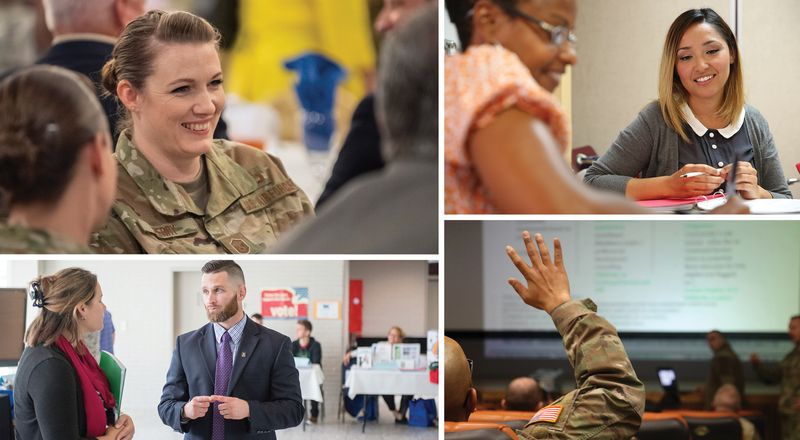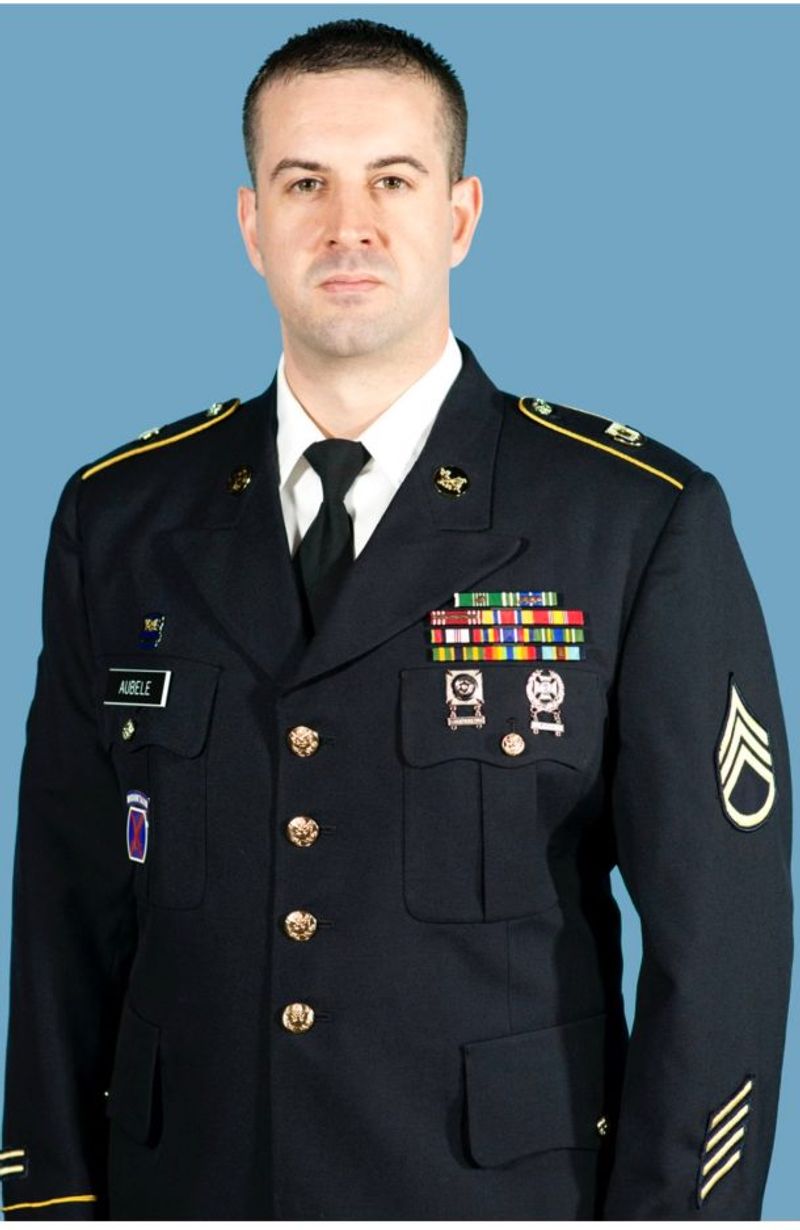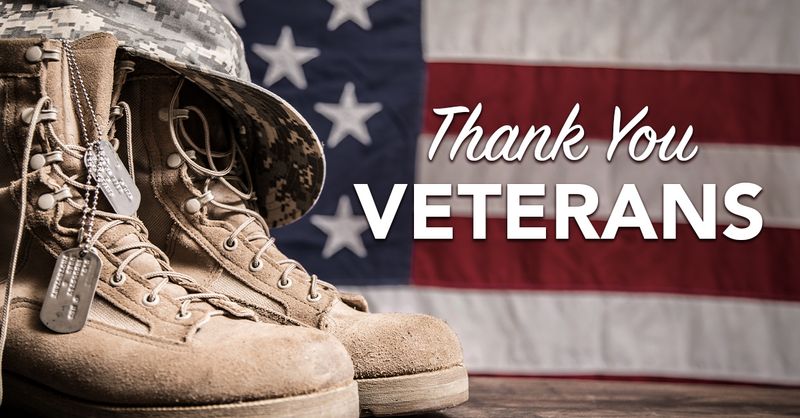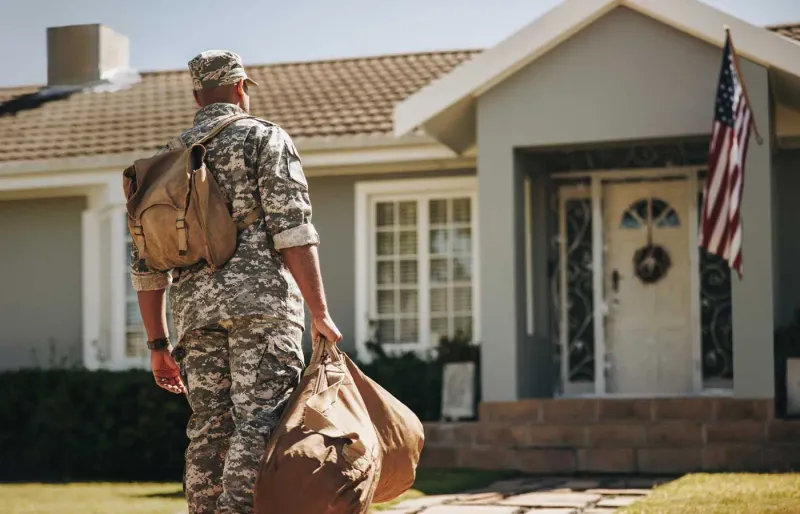When we talk about veterans, certain images often come to mind. But these stereotypes can actually harm how we see and support those who served our country.
These misconceptions don’t just exist in movies or TV shows – they affect real people in everyday life.
Understanding these harmful stereotypes is the first step toward giving veterans the recognition they truly deserve.
1. All Veterans Have PTSD
Veterans get labeled as walking trauma cases far too often. While PTSD affects many who served, assuming every veteran struggles with mental health issues creates unfair barriers. This harmful generalization leads employers to hesitate before hiring veterans, fearing unpredictable behavior or excessive accommodations. In social settings, people might walk on eggshells around veterans, afraid to trigger an imagined response. The reality? Most veterans process their experiences differently, and many never develop PTSD at all. This stereotype prevents us from seeing veterans as individuals with unique experiences and mental health journeys.
2. Veterans Are Ticking Time Bombs
Hollywood loves portraying veterans as unstable characters ready to snap at any moment. Action movies feature the traumatized vet who explodes into violence when triggered by everyday sounds or situations. This dangerous portrayal creates fear and distance between veterans and civilians. Community members might avoid meaningful connections with veterans based solely on these fictional representations. Most veterans maintain remarkable composure under stress – it’s literally what they were trained for. Their military experience often gives them exceptional crisis management skills and emotional regulation, making them among the most level-headed people in many situations.
3. Veterans Are Broken or Damaged
The ‘damaged goods’ narrative follows veterans everywhere. News stories focus on struggles and challenges, rarely highlighting success stories or positive transitions. This stereotype encourages pity rather than respect. Veterans don’t need sympathetic head-tilts or whispered concerns – they need meaningful opportunities and genuine connections. Military service builds incredible resilience, problem-solving abilities, and adaptability. Many veterans emerge from service with enhanced leadership skills, stronger work ethics, and clearer perspectives on what matters in life. Their experiences haven’t broken them – they’ve forged stronger, more capable individuals.
4. All Veterans Are Conservatives
The assumption that military service equals conservative political views misrepresents a diverse population. Veterans come from every state, background, and belief system in America. This stereotype silences veterans with different viewpoints and pressures them to conform to expected political positions. Many feel they can’t express their true opinions without having their service questioned. Military service attracts people motivated by various values: duty, opportunity, family tradition, education benefits, and personal growth. These motivations cross political lines. Veterans deserve to be recognized as independent thinkers who form political views based on their unique experiences and values.
5. Veterans Only Know How to Follow Orders
The robotic, order-following soldier stereotype undermines veterans’ creativity and decision-making abilities. Military service actually demands incredible initiative, especially in modern warfare scenarios. Servicemembers regularly make split-second decisions with limited information under extreme pressure. They’re trained to adapt when plans fail and think creatively when resources are scarce. Far from mindless followers, many veterans have mastered the art of decisive action within structured environments. They understand both the importance of teamwork and when to step forward with innovative solutions. This balance of discipline and creativity makes veterans exceptional problem-solvers in civilian settings.
6. Veterans Are All Male
Female veterans often hear the question: “Your husband was in the military?” This erasure of women’s service happens daily at VA hospitals, military events, and in casual conversations. Women have served in every American conflict since the Revolution, yet their contributions remain largely invisible. Today, women make up approximately 10% of the veteran population – over 2 million Americans. This stereotype denies female veterans proper recognition and access to benefits. When we picture only male veterans, we fail to design support systems that address women veterans’ unique needs. The invisibility creates additional barriers for women who’ve already overcome significant challenges to serve.
7. Veterans Are Unemployable
“Military skills don’t translate.” This common misconception leads employers to overlook incredible talent. Many hiring managers struggle to connect military experience with civilian job requirements. Veterans often undersell themselves too, unable to translate their experiences into corporate language. The military-civilian divide creates unnecessary barriers to employment. The truth? Veterans bring exceptional qualities to the workplace: punctuality, teamwork, leadership, performance under pressure, and adaptability. They’ve managed million-dollar equipment, led diverse teams, and solved complex logistical challenges. Companies that recognize these transferable skills gain employees with unmatched work ethic and commitment.
8. All Veterans Are Old
The word “veteran” often conjures images of elderly men from World War II or Vietnam. This outdated picture erases millions of younger veterans who served in recent conflicts or during peacetime. Nearly half of all veterans are under age 65, with Iraq and Afghanistan veterans typically in their 20s to 40s. These younger veterans face different challenges than previous generations, including raising young families while transitioning to civilian life. When we only recognize older veterans, we miss opportunities to support those navigating education, early careers, and family formation. Young veterans often feel invisible in a society that doesn’t recognize them as having “really served” unless they fought in earlier, more recognized conflicts.
9. They Can’t Reinvent Themselves
“Once a soldier, always a soldier” thinking traps veterans in limited career paths. Many people assume veterans can only work in security, law enforcement, or defense contracting after service. This narrow view ignores veterans thriving as entrepreneurs, healthcare providers, teachers, and tech innovators. Military experience builds adaptability and learning agility – perfect qualities for career changers. Veterans often develop specialized skills during service: cybersecurity expertise, emergency medicine, logistics management, or advanced technical training. Combined with GI Bill education benefits, these foundations allow veterans to build successful careers in virtually any field. Their military background becomes an asset, not a limitation.
10. Veterans Want Constant Praise
The “thank you for your service” culture creates an awkward dynamic. Many civilians believe veterans crave constant recognition and special treatment. Most veterans actually feel uncomfortable with performative gratitude. Empty thanks without meaningful support or understanding can feel hollow or even patronizing. What veterans truly value is genuine connection and practical support: fair employment opportunities, accessible healthcare, and authentic community integration. They appreciate being recognized as complete individuals with skills and stories beyond their military service. Real recognition means seeing veterans as valuable community members, not just former soldiers deserving superficial thanks.
11. Every Veteran Is a Hero
The automatic “hero” label seems positive but creates unrealistic expectations. Veterans often feel pressure to live up to an idealized image that doesn’t match their actual experiences or self-perception. Military service involves ordinary people doing their jobs – sometimes extraordinary jobs, but jobs nonetheless. Many veterans feel uncomfortable with hero worship, especially when they served in support roles or never saw combat. This stereotype prevents honest conversations about military experiences. Veterans may feel they can’t express doubts, regrets, or complicated feelings about their service without disappointing others. True recognition means allowing veterans their full humanity, including the messy, non-heroic parts.
12. Veterans Don’t Need Help Because They’re Tough
Military training emphasizes mental and physical toughness. This creates the harmful myth that “real” veterans should handle all challenges alone. The tough-it-out mentality prevents many veterans from seeking help with legitimate challenges. Pride and fear of appearing weak keep veterans from accessing mental health services, housing assistance, or other support programs. Strength actually includes knowing when to ask for help. The military teaches interdependence and teamwork, not isolated self-reliance. Veterans deserve support systems that honor their resilience while acknowledging that everyone needs assistance sometimes. True toughness means having the courage to reach out when necessary.
13. They All Miss the Military and Want to Go Back
Movies often portray veterans as perpetually nostalgic for military life. The restless veteran who can’t adjust to civilian life makes for dramatic storytelling but misrepresents many veterans’ experiences. While some veterans do miss aspects of military service – particularly the camaraderie and clear purpose – many successfully transition to civilian life. They build new identities, find meaningful work, and create fulfilling relationships outside the military structure. Assuming all veterans are stuck in the past prevents us from seeing their current contributions and future potential. Many veterans appreciate their service while being fully committed to their civilian lives and careers. Their military chapter shaped them but doesn’t define their entire story.
14. Veterans Are All the Same
Military uniforms create an illusion of sameness that hides incredible diversity. Veterans represent every racial, ethnic, religious, and socioeconomic background in America. Service experiences vary dramatically too. A Marine infantryman, Air Force mechanic, Navy nurse, and Army logistics officer had fundamentally different military careers. Combat deployment, peacetime service, length of enlistment, and era of service all shape veterans’ perspectives. When we lump all veterans together, we erase these rich differences and individual stories. Recognizing veterans means seeing them as unique individuals whose military service is just one aspect of their identity. Their diverse backgrounds and experiences bring valuable perspectives to our communities.
15. Veterans Are Only Defined by Their Service
The one-dimensional veteran stereotype reduces complex individuals to their military chapter alone. Veterans regularly encounter people who can only discuss their service, ignoring other aspects of their identity and experience. Before and after their military service, veterans are parents, artists, students, entrepreneurs, community volunteers, and much more. Their interests, talents, and contributions extend far beyond their time in uniform. True recognition means seeing veterans as complete people with evolving identities. Their service matters but doesn’t erase everything else about them. The most meaningful support acknowledges their military experience while engaging with all aspects of who they are and who they’re becoming.
